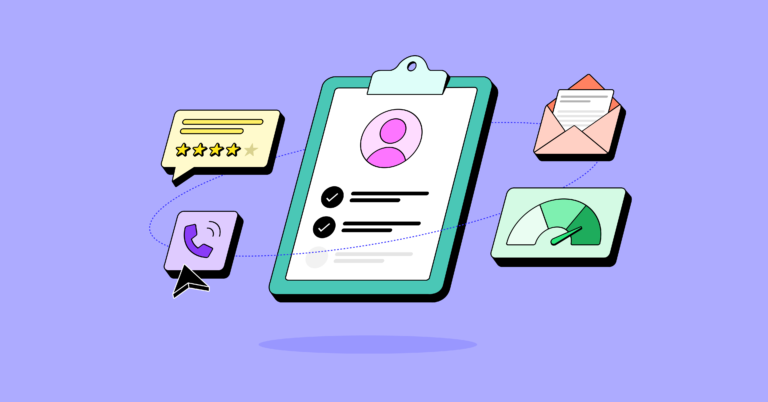Logging customer interactions is essential for managing relationships, improving service, and protecting your business. But if those logs include personal data and you’re not storing, accessing, or documenting that information in a legally compliant way, you’re opening the door to regulatory violations and potential lawsuits. Whether your business tracks chats, emails, phone calls, or support tickets, those records fall under multiple data protection and privacy laws. Small businesses often believe that because they aren’t collecting health records or credit scores, their practices are exempt. In reality, nearly every customer interaction log—if tied to a person—must be handled within strict legal boundaries.
What Legal Rules Apply to Logging Customer Interactions?
Customer interaction logs are subject to privacy and data protection laws, including the General Data Protection Regulation (GDPR), California Consumer Privacy Act (CCPA), and other state-specific statutes. These laws classify customer communications as personal data, especially when logs include names, contact details, purchase history, or complaints. If you collect, store, or share this information, your business must follow legal standards around consent, access rights, security, and retention.
Certain industries face even stricter compliance rules. Healthcare providers must follow HIPAA when storing patient communication. Financial institutions face rules under the Gramm-Leach-Bliley Act (GLBA), while companies dealing with minors or educational data face COPPA and FERPA restrictions. Even if your logs exist only for internal tracking, regulators can still hold your business accountable for how that data is collected, used, and protected. Getting guidance from attorneys ensures your logging systems comply with the right set of legal frameworks.
When Does Logging Become a Legal Liability?
Liability arises when customer logs are incomplete, unsecured, misleading, or accessed without proper authorization. For example, recording support calls without notifying the customer can violate wiretap laws in certain states. Storing chat logs without encryption or role-based access controls can result in data breaches. Logging sensitive interactions without clear purpose or consent—especially in regulated fields—may trigger compliance reviews or lawsuits.
Legal complaints often follow mishandled interactions where a company fails to acknowledge prior correspondence, denies a record of complaints, or provides inaccurate logs during a dispute. If your business is audited, sued, or investigated, those interaction logs can be used as evidence. If they’re inconsistent, manipulated, or missing key communications, they may be interpreted as negligence or bad faith. Such outcomes are frequently reported through legal news, where small business practices around digital records are scrutinized.
What Types of Information Must Be Logged Carefully?
Any data that connects a customer to a specific communication requires compliant handling. This includes names, addresses, timestamps, service complaints, purchases, preferences, and notes taken by employees. If your CRM, help desk platform, or internal spreadsheets store this information, they must follow the same legal protections as other types of personally identifiable information (PII). The same rules apply to metadata like IP addresses or device identifiers if they can be linked back to a customer.
It is especially important to treat subjective employee comments or flags as part of the legal record. Statements like “customer is difficult” or “possible fraud” can trigger legal disputes if they are disclosed in litigation or through consumer access requests. Business owners must treat logs as discoverable records and enforce consistent, professional language in internal documentation. Every note or record may eventually be read in court or during an investigation.
How Can You Tell If Your Logging Practices Are Compliant?
To assess compliance, examine where, how, and why you collect customer interaction data. Ask whether your logs are complete, secure, and legally accessible to the customer upon request. Determine whether your employees are trained on what to log, how to phrase entries, and when to update records. If your system lacks audit trails, encryption, or permission layers, you may already be out of compliance with basic data protection requirements.
Also evaluate how long you retain records and whether that timeline is documented in your privacy policy. Many data laws require that businesses minimize data retention and delete records once they’re no longer needed. If your logs are never reviewed, purged, or categorized by risk, you may be storing data longer than the law allows—creating exposure without value.
What Concrete Steps Ensure Legal Compliance in Logging?
Follow the best-practice compliance strategies outlined in the list below.
Implementing these actions will help you log customer interactions in a way that protects your business and meets legal obligations:
- Inform customers that communications may be recorded or logged: Include notices in email footers, chat windows, and phone greetings. This provides legal cover and sets the expectation for responsible data use.
- Store logs in secure, access-controlled systems: Use platforms with role-based permissions, encryption, and audit tracking. Never rely on unsecured spreadsheets or shared drives to store customer records.
- Train employees to log factual, neutral, and useful notes: Avoid emotional language or assumptions in logs. Teach staff to document interactions clearly and consistently, with the assumption that logs could become public.
- Review your privacy policy to include logging practices: Disclose what types of customer communications are stored, why they are collected, and how users can request copies or deletions of those records.
- Implement a data retention and destruction schedule: Define how long you keep interaction logs based on legal and operational needs. Create an automated process for archiving or deleting old records to reduce unnecessary risk.
Customer interaction logs are not just internal tools—they are legal documents that reflect your business’s treatment of its clients. When logged carelessly or retained improperly, they become liabilities. But when logged professionally, stored securely, and disclosed lawfully, they serve as your best defense in customer disputes and regulatory reviews. Building a compliant logging process means treating every recorded conversation like it matters—because legally, it does.


